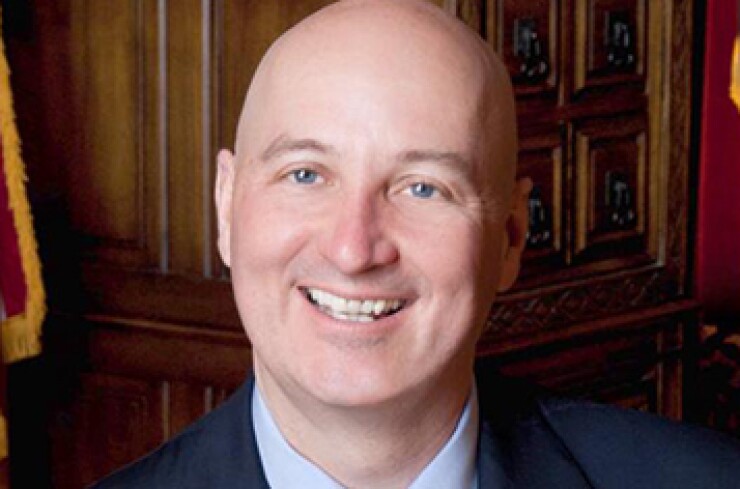
DALLAS – Nebraska expects to complete the final 132 miles of a statewide system of four-lane expressways with a $450 million, 17-year transportation funding package signed into law on Monday by Gov. Pete Ricketts.
The Transportation Innovation Act (Legislative Bill 960) establishes a transportation infrastructure bank to fund the remaining work on the planned 600-mile expressway system that was first proposed more than 30 years ago.
The bank will be initially capitalized with a one-time infusion of $50 million from the state's rainy day fund later this year and then supported by 17 years of revenue from a portion of a 6-cent increase in Nebraska's gasoline approved by lawmakers in 2015 over Ricketts' veto.
The additional investments in the state's transportation infrastructure will boost Nebraska's economy, Ricketts said.
"Agriculture, manufacturing, and tourism, our state's three largest industries, depend on a 21st-century infrastructure to grow and expand," he said at Monday's bill-signing ceremony. "Accelerating work on our expressway systems and investing in projects that help grow and expand businesses, will help kick-start economic growth in these areas."
State Sen. Jim Smith, chairman of the legislature's transportation committee and sponsor of the road bill, said the 17-year funding plan will help provide the infrastructure that is vital to Nebraska's economy.
"It's a necessary step if we want to pull our state out of a rut our critical infrastructure has fallen into," Smith said. "This is a big day for commerce in our state."
Kyle Schneweis, the director of the Nebraska Department of Roads, said work will begin on the remaining expressway segments no earlier than 2019. Completion of the network is expected in 2033, the final year of the infrastructure bank program.
Ricketts said he did not regret his veto of the gasoline tax increase last year.
"I was not in favor of a [higher] gas tax, because I didn't think we needed to add on taxes. We should've found another way to do it without it," he said. "What we want to do with this bill since the gas tax did pass was to dedicate those funds to make sure they're working for the people of Nebraska."
The state gasoline tax that had been 25.6 cents per gallon since 2008 went up by 1.5 cents at the beginning of 2016 and will go up a similar amount each year through 2019.
The new rate of 31.6 cents per gallon is expected to generate an additional $75 million a year when fully implemented in 2019, with $25 million of new revenue going to the state and $50 million allocated to cities and counties for local road and bridge projects.
The road-funding proposal was adopted unanimously last week by a 48-0 vote in Nebraska's one-chamber legislature.
An analysis of bill by legislative budget experts said the gasoline tax revenue dedicated to the infrastructure bank would total at least $400 million from the beginning of fiscal 2017 on July 1 to the end of fiscal 2033.
The funding measure also provides $40 million for a matching grant program for county bridge repairs and $20 million for transportation projects to entice companies to expand their existing Nebraska operations or set up a new business.
Ricketts asked lawmakers earlier this year for a $300 million infrastructure bank that would be capitalized with $150 million from the rainy day fund over three years and $150 million of gasoline tax revenues through fiscal 2023. Lawmakers cut the fund transfer to a single $50 million infusion but extended the gasoline tax allocations through fiscal 2033 to provide an additional $250 million to Ricketts' proposed infrastructure bank.





